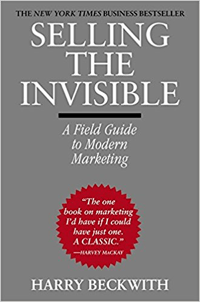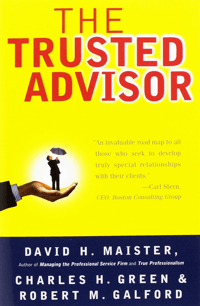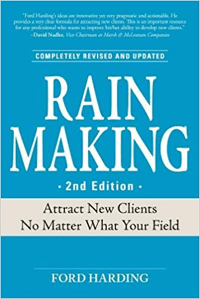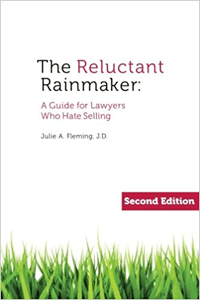As the holidays approach, it seems like a great time to focus on continuing financial education. Just like lawyers have to maintain a certain number of CLE (Continuing Legal Education) credits each year to stay in good standing with the state bar, it’s a good idea to make sure you’re keeping up with your financial education as well.
Of course this isn’t a substitute for the hard financial work that everyone has to go through when they make the leap from law student to practicing lawyer. Whether you like it or not, figuring out things like student loans, retirement accounts and saving goals are mandatory. You can delay them as long as you like but sooner or later everyone ends up in the same place of needing to come to terms with the financial reality.
Instead, think of CFEs as making an effort to stay current in the personal finance space as well as maybe picking up a new idea or two that you can implement over the coming year. I think most people can achieve this by reading one good financial book a year (and of course, shameless plug – following a blog like this for topics that interest you).
If you try to take on too many books and new ideas, you might not implement anything so I wouldn’t go overboard ordering dozens of books when there are plenty of individual books with enough good ideas to keep you busy for months (in addition to all that lawyering you’re doing on the side).
Today’s post is a list of books that I’ve found helpful over the past few years that relate to expanding your practice or otherwise allowing you to move up in the legal organizational structure. I’ve also included a brief summary of the book from my notes when I read it. It’s been years since I’ve read some but looking over these notes it’s surprising how I can’t remember a time before I knew about some of the ideas in these books. It just goes to show that we all start with barely any knowledge and have to build an education ourselves.
The following books focus on the business side of lawyering, so might not be too helpful unless you’re a lawyer or involved in a service business. If one looks interesting, pick it up while you’re taking advantage of the Black Friday deals this week!
What does it mean to sell legal services?
Selling the Invisible: A Field Guide to Modern Marketing by Harry Beckwith.
by Harry Beckwith.
Considered a classic in marketing, I enjoyed how the book begins by stating that “the core of service marketing is the service itself.” Let’s face it, lawyers aren’t selling iPhones or TVs. We’re selling an invisible product, one that is hard for most consumers to distinguish from other products. That means that we’re in the service business and need a completely different approach to marketing. While most lawyers associate marketing with something akin to a pushy car salesman, thankfully that’s not the path forward. Beckwith believes that consumers are primary interested in relationships, not features and that there are ways to develop marketing plans that for invisible products like legal services.
Is good service enough?
 The Trusted Advisor by David Maister
The Trusted Advisor by David Maister
Building on the idea of selling the invisible, David Maister’s older (but still excellent) book about becoming a trusted advisor wants you to earn the trust and confidence of clients. Forget flashy advertisements or gilded reception portals, in the modern world there are too many professionals and such low transaction costs that you can’t expect to build your career by paying someone else to do the marketing for you. This book taught me the power of building genuine relationships the only way you can: slowly and methodically. In some ways the Trusted Advisor really the core of the opening idea in Selling the Invisible (i.e. the service marketing is the service itself). You start from that position and then have to learn how to show the world that you’re providing good service.
Setting up systems that work
 Rain Making: Attract New Clients No Matter What Your Field by Ford Harding.
Rain Making: Attract New Clients No Matter What Your Field by Ford Harding.
This is probably my favorite of the four books. It’s a step-by-step guide to systematically becoming a top performer in any type of field. It’s full of checklists, tables and action items. I’m a huge fan of systems. One of my first articles on the site was a plea to make sure you systematically capture your reimbursable expenses. While that’s a good idea, it pales in comparison to building an empire. Rain Making will take you through each step to build a marketing machine and a marketing structure that leads to getting in front of potential clients. From there it’s up to you to turn those leads into clients and ultimately longterm partners. For anyone that is interested in systematizing marketing, this is the book for you!
What if you don’t want to sell?
 The Reluctant Rainmaker: A Guide for Lawyers Who Hate Selling by Julia Fleming.
The Reluctant Rainmaker: A Guide for Lawyers Who Hate Selling by Julia Fleming.
Finally, if you’re looking for something specific for lawyers, Fleming’s book is good choice because she’s a lawyer herself and understands the profession. She’s also aware that many lawyers are not particularly interested in business development (even if they understand that the most valuable lawyers at the firm are the rainmakers). Another helpful part of Fleming’s book is that she’s organized topics depending on where you are in your career. In other words, she’s not telling a junior associate that they need to be seen as a “thought leader” in the industry. She’s even got a chapter for introverts.
I hope one of these four books looks interesting and that you might find it helpful in developing your practice. If you’re a lawyer working for the government or in-house, don’t make the mistake of thinking that you don’t have clients! Everyone has clients. The junior associate’s clients are midlevel associates. The in-house lawyer works for the business units. The government lawyer has supervisors to impress, juries to convince, etc. We’re all in this together!
Joshua Holt is a former private equity M&A lawyer and the creator of Biglaw Investor. Josh couldn’t find a place where lawyers were talking about money, so he created it himself. He spends 10 minutes a month on Empower keeping track of his money and is currently looking for additional lenders to add to Biglaw Investor’s JD Mortgage service which connects readers with lenders offering special mortgages for high-income professionals.
